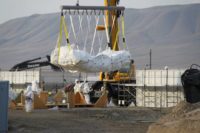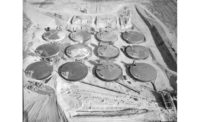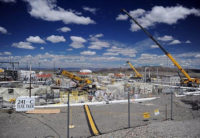GAO and DOE Spar on Hanford Waste Megaproject's Lingering QA Issues
Many previously identified problems continue to plague the complex waste treatment plant being built to immobilize much of the 54 million gallons of radioactive and chemical waste stored at the U.S. Energy Dept.’s Hanford site in Washington state, prompting government investigators to recommend stopping work on the $17-billion project, underway since 2002, when those problems recur. The U.S. Government Accountability Office also recommends that quality assurance (QA) officers be independent from management responsible for cost and schedule to avoid conflicts of interest.
The Waste Treatment and Immobilization plant has faced persistent QA issues that have delayed the project and tripled its cost, GAO said in its April report to a U.S. Senate committee. It looked at on-site DOE actions to identify, address and prevent recurrences. DOE and design-build contractor Bechtel implemented a “managed improvement plan” in 2014 to ensure the plant could operate in compliance with DOE safety and quality mandates. But GAO said a number of requirements—including those for QA in structures, systems and components for plant operation—have not yet been implemented.
A 2015 DOE Inspector General report said Bechtel had procured $4 billion in parts and materials but took so long to identify problems that it could not recover costs for nearly half the 1,400 items. A 2016 internal agency report found construction and supplier deficiencies, engineering errors and maintenance issues. “DOE may face future rework that could increase costs and schedules,” GAO said. Ann White, DOE’s assistant secretary for environmental management, agreed that Bechtel must fully identify problems in plant structures and stop work when they recur. She said the current quality-assurance program is independent, but it will be reassessed to confirm independence from cost and schedule influences.




